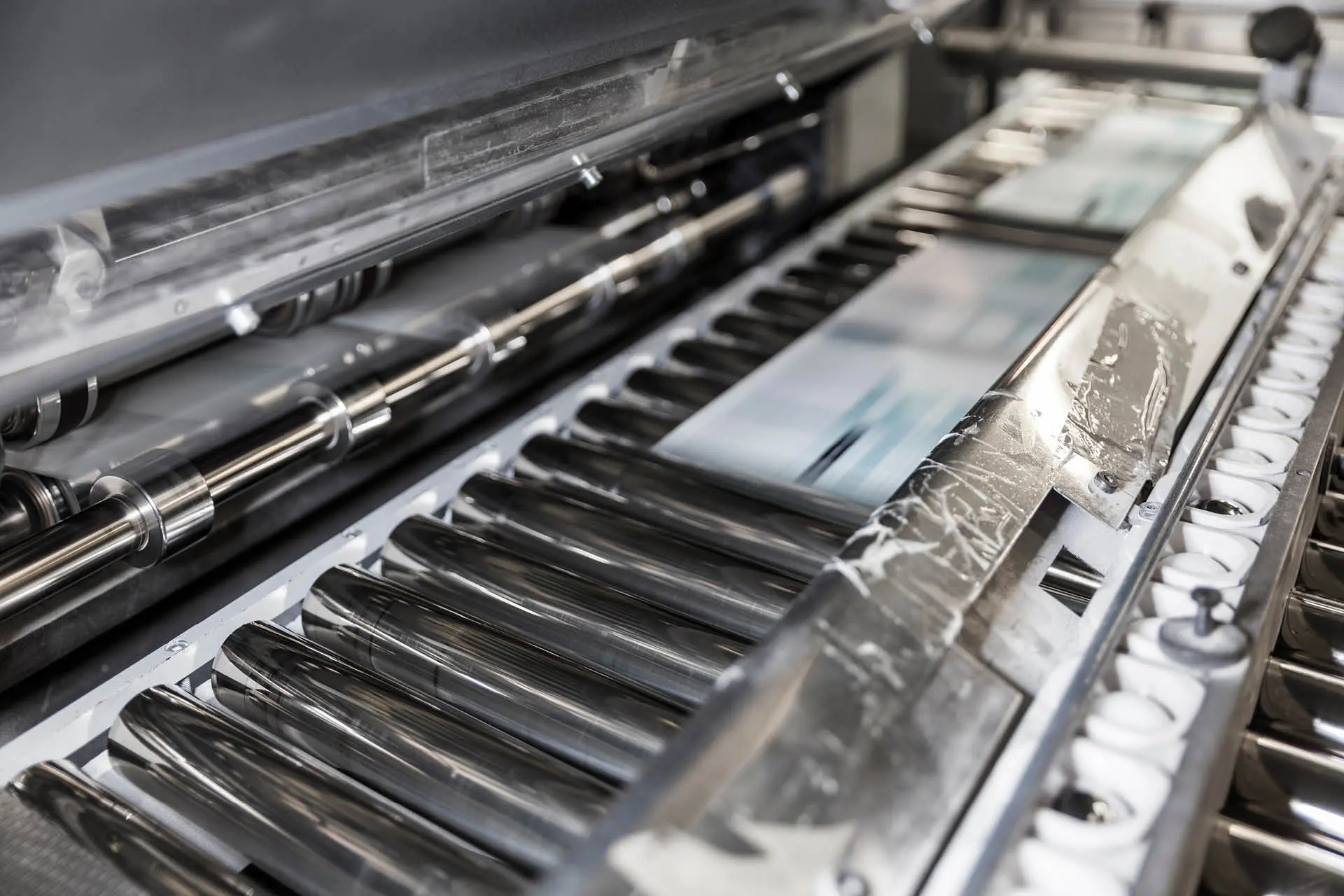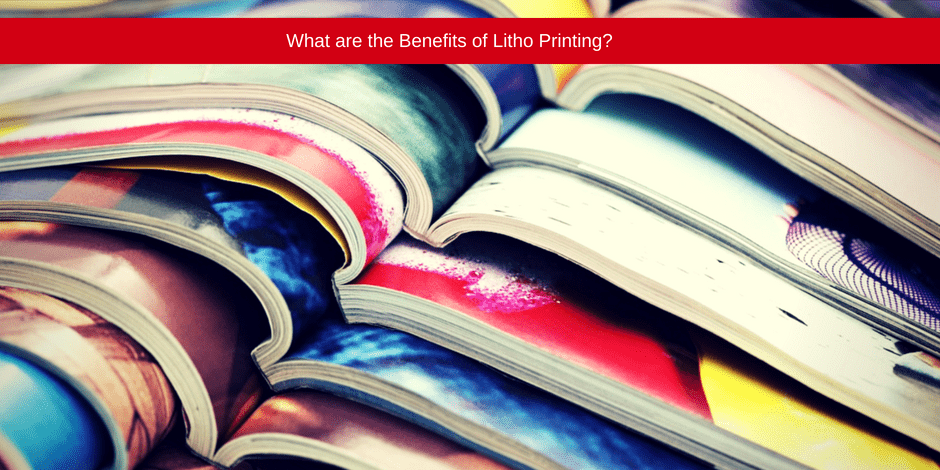A Comprehensive Overview to Comprehending Litho Printing Methods
The globe of litho printing, a method stemming from the late 18th century, is an interesting blend of history, innovation, art and science. This thorough guide will untangle the complexities of this printing method, from the composition of litho inks to the difficulties dealt with in modern-day applications. As we venture right into the complexities of lithography, the relevance of automation and sustainability in guaranteeing its future importance comes to be increasingly clear. Remain with us as we trip into the captivating realm of litho printing.
The Historic Advancement of Litho Printing
The historical trajectory of litho printing, an essential development in the world of interaction, is a captivating story of human ingenuity. The procedure advanced with the development of the rotating press, which considerably raised productivity. Each phase of litho printing's advancement showcases humanity's ruthless pursuit of performance and quality in aesthetic interaction.
Decoding the Science Behind Litho Printing Inks
Moving ahead in the exploration of litho printing techniques, the focus currently shifts to the scientific research behind litho printing inks. The structure of these inks, their drying out procedure, and color mixing strategies create the foundation of this complex art form. Understanding these elements is crucial to understanding the craft and achieving the preferred print outcomes.
Make-up of Litho Inks
In lithographic printing, the essential duty of litho inks can not be overstated. The make-up of litho inks varies relying on its function, but typically, they consist of 2 main elements - vehicles and pigments. Pigments, the color-providing aspects, are finely ground bits put on hold in the automobile, a liquid that lugs the pigment onto the printing surface area. The car is an intricate mix of resins, oils, and solvents, which influence the ink's drying out time, adhesion, and gloss. Additionally, numerous ingredients exist to boost specific residential properties like circulation, drying, and resistance to ecological results. Each component plays a vital component in the last print's quality, making the exact formulation of litho inks a complex scientific research.
Ink Drying Process
From the structure of litho inks, attention turns to the remarkable process of ink drying. The drying out process is essential, as it impacts the final print's quality and longevity. 2 primary approaches are utilized in litho printing: oxidative drying out and absorption. Oxidative drying out entails the ink responding with oxygen airborne to create a hard, dry film. This method offers a resilient surface, however can be slower compared to absorption. Absorption, on the other hand, entails the ink permeating into the paper fibers, which is a quicker process but can result in less lively colors. The selection in between these approaches depends on aspects such as print speed demands, the paper kind used, and the preferred coating.
Shade Combining Methods
While the drying procedure plays a crucial role in litho printing, the scientific research of shade mixing techniques holds equal importance. This is a complicated procedure that includes the mindful mixing of main shades: cyan, magenta, and yellow, in differing percentages to attain a wide array of shades. The enhancement of black ink, understood as 'essential', assists in managing the strength and depth of the colors. The scientific research behind litho printing inks also takes into consideration the openness of the ink, which influences exactly how shades overlay and mix. To achieve an efficient color mix, print professionals have to likewise comprehend the ins and outs of ink habits, shade theory, and the physical properties of the substrate on which the ink is used.
The Art and Layout Elements in Litho Printing
Litho printing takes a breath life into art and design with its distinct aspects. The process includes creating a picture on a lithographic sedimentary rock plate or metal plate with a smooth surface area. The image is then published onto a medium, typically paper, by transferring the ink from the plate. What collections litho printing apart is its capability to reproduce detailed layouts with high integrity, making the result almost similar to the original artwork. This is accomplished via using different line methods such as hatching, cross-hatching, and stippling, which enable for a series of tonal results. Litho printing accommodates a range of shades, allowing musicians to develop vibrant and dynamic prints. This combination of accuracy and flexibility makes litho printing a click resources recommended choice for numerous artists and designers.
Modern Applications of Litho Printing Methods
Litho printing techniques have actually located considerable use in the modern industrial sector. Its impact and value remain to grow with the development of new technologies and technologies in the area. This area will certainly check out these contemporary applications and the transformative role they play in the printing industry.
Business Litho Printing Uses
Litho printing stays an essential component of the commercial sector. High-volume printing jobs, such as the manufacturing of books, papers, and product packaging, depend on litho printing for its capacity to supply superior image top quality and expense efficiency. Litho printing also offers a wide shade spectrum, superior to that of electronic printing.
Developments in Litho Printing
Pushing the borders of traditional techniques, modern advancements have actually fueled a host of innovations in litho printing. One prominent growth is electronic litho printing, which incorporates the merits of digital modern technology with litho's premium outcome. These advancements highlight the enduring significance of litho printing in Learn More Here the modern-day globe.
Discovering the Process of Litho Printing: Step by Step

Obstacles and Solutions in Contemporary Litho Printing

In spite of the accuracy and custom that litho printing happily supports, it is not without its collection of contemporary challenges. One of the most common issues consist of the high initial setup price, problem in printing variable data, and ecological problems due to chemical usage. Nonetheless, options are becoming modern technology evolves. Digital litho printing allows for cost-efficient brief runs and very easy modification, dealing with the problem of variable information. Environmentally-friendly inks and more secure plate-making procedures reduce these details environmental problems. Furthermore, improvements in automation have actually decreased labor prices, further equalizing the lithography process. Hence, while there are challenges, the litho printing market is proactively adapting to fulfill them head-on, guaranteeing its importance in the future.
Conclusion
In conclusion, litho printing, with its abundant history and scientific details, holds a significant area in the print market. The future of litho printing hinges on its capacity to adapt to these transforming needs, affirming its long-lasting value in an advancing market.

Comments on “litho printing Techniques Used by Expert Print Shops”